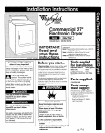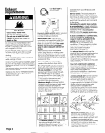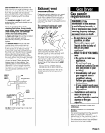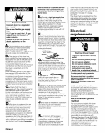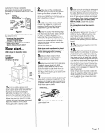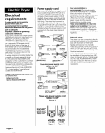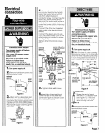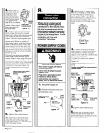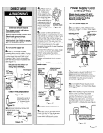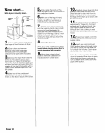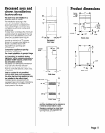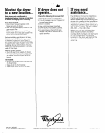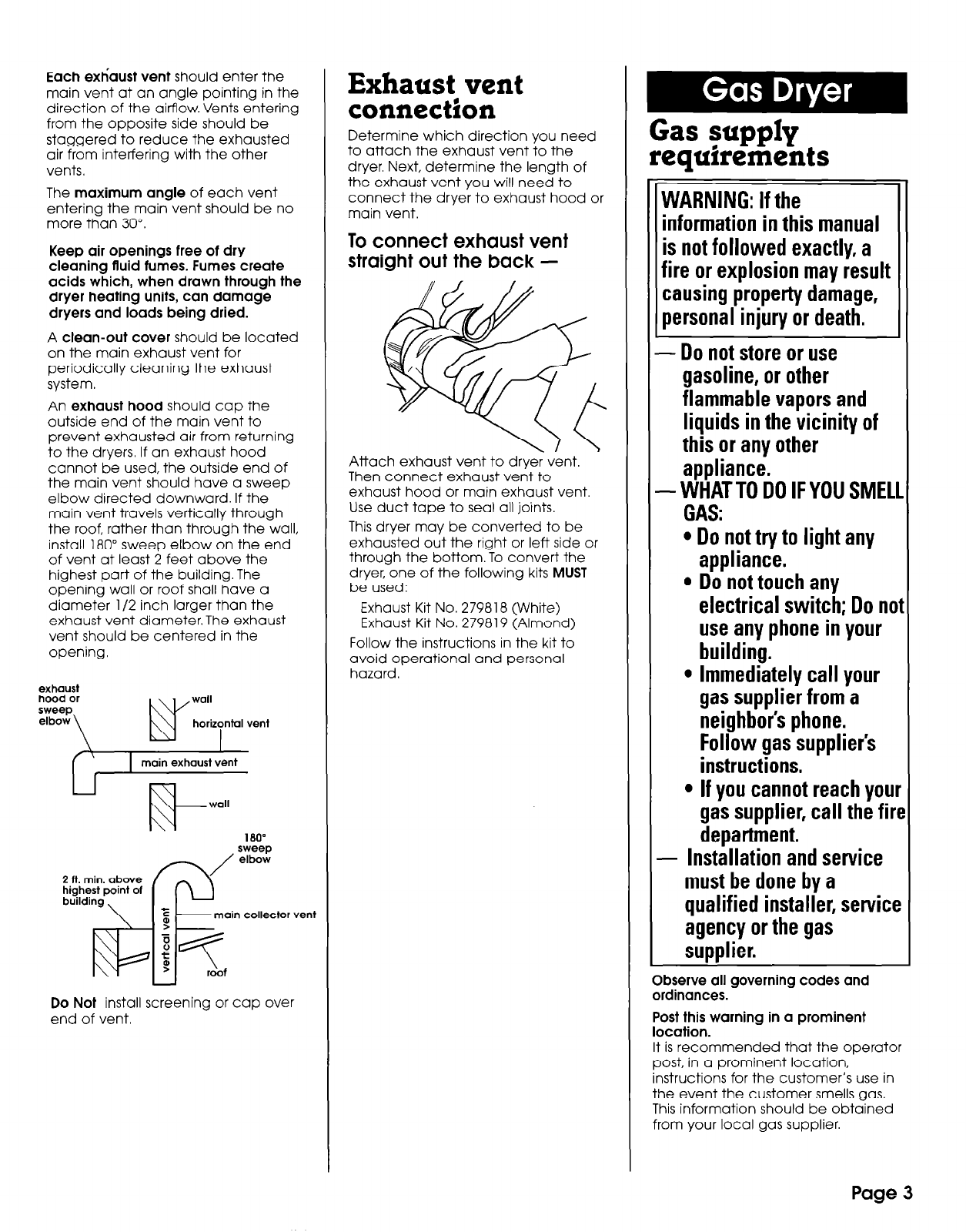
Each exh’aust vent should enter the
main vent at an angle pointing in the
direction of the aitilow. Vents entering
from the opposite side should be
staggered to reduce the exhausted
air from interfering with the other
vents.
The maximum angle of each vent
entering the main vent should be no
more than 30”.
Keep air openings free of dry
cleaning fluid fumes. Fumes create
acids which, when drawn through the
dryer heating units, can damage
dryers and loads being dried.
A clean-out cover should be located
on the main exhaust vent for
periodically cleaning the exhaust
system.
An exhaust hood should cap the
outside end of the main vent to
prevent exhausted air from returning
to the dryers If an exhaust hood
cannot be used, the outside end of
the main vent should have a sweep
elbow directed downward. If the
main vent travels vertically through
the roof, rather than through the wall,
install 180” sweep elbow on the end
of vent at least 2 feet above the
highest part of the building. The
opening wall or roof shall have a
diameter l/2 inch larger than the
exhaust vent diameter. The exhaust
vent should be centered in the
opening.
exhaust
hood or
l-l
R-
WOII
180”
2 ft. min. above
highest point of
collector vent
Do Not install screening or cap over
end of vent.
Exhaust vent
connection
Determine which direction you need
to attach the exhaust vent to the
dryer. Next, determine the length of
the exhaust vent you will need to
connect the dryer to exhaust hood or
main vent.
To connect exhaust vent
straight out the back -
Attach exhaust vent to dryer vent.
Then connect exhaust vent to
exhaust hood or main exhaust vent
Use duct tape to seat all joints.
This dryer may be converted to be
exhausted out the right or left side or
through the bottom. To convert the
dryer, one of the following kits MUST
be used:
Exhaust Kit No. 279818 (White)
Exhaust Kit No. 279819 (Almond)
Follow the instructions in the kit to
avoid operational and personal
hazard.
Gas supply
requirements
WARNING: If the
information in this manual
is not followed exactly, a
fire or explosion may result
causing property damage,
personal injury or death.
- Do not store or use
gasoline, or other
flammable vapors and
liquids in the vicinity of
this or any other
appliance.
- WHATTO DO IF YOU SMELL
GAS:
l
Do not try to light any
appliance.
l
Do not touch any
electrical switch; Do noi
use any phone in your
building.
l
Immediately call your
gas supplier from a
neighbor’s phone.
Follow gas supplier’s
instructions.
l
If you cannot reach your
gas supplier, call the firt
department.
- Installation and service
must be done by a
qualified installer, service
agency or the gas
supplier.
Observe all governing codes and
ordinances.
Post this warning in a prominent
location.
It is recommended that the operator
post, in a prominent location,
instructions for the customer’s use in
the event the customer smells gas.
This information should be obtained
from your local gas supplier.
Page 3



